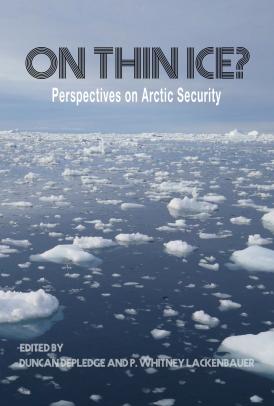The Arctic and World Order
Kristina Spohr and Daniel S. Hamilton, Editors
Jason C. Moyer, Associate Editor
List of Chapters:
Foreword
Introduction – From Last Frontier to First Frontier: The Arctic and World Order by Kristina Spohr and Daniel S. Hamilton
Chapter 1 – Shifting Ground: Competing Policy Narratives and the Future of the Arctic by Oran R. Young
Chapter 2 – Conservation in the Arctic by Henry P. Huntington
Chapter 3 – Greenland, the Arctic, and the Issue of Representation: What is the Arctic? Who Has a Say? by Inuuteq Holm Olsen
Chapter 4 – A Tipping Point for Arctic Regimes: Climate Change, Paradiplomacy, and a New World Order by Victoria Herrmann
Chapter 5 – Russia and the Development of Arctic Energy Resources in the Context of Domestic Policy and International Markets by Arild Moe
Chapter 6 – Governance and Economic Challenges for the Global Shipping Enterprise in a Seasonally Ice-Covered Arctic Ocean by Lawson Brigham
Chapter 7 – Climate Change and the Opening of the Transpolar Sea Route: Logistics, Governance, and Wider Geo-economic, Societal and Environmental Impacts by Mia M. Bennett, Scott R. Stephenson, Kang Yang, Michael T. Bravo, and Bert De Jonghe
Chapter 8 – Military Infrastructure and Strategic Capabilities: Russia’s Arctic Defense Posture by Ernie Regehr
Chapter 9 – Freedom of the Seas in the Arctic Region by J. Ashley Roach
Chapter 10 – Constant and Changing Components of the Arctic Regime by Alexander N. Vylegzhanin
Chapter 11 – The U.S.-Canada Northwest Passage Disagreement: Why Agreeing to Disagree Is More Important Than Ever by Suzanne Lalonde
Chapter 12 – Power, Order, International Law, and the Future of the Arctic by Nengye Liu
Chapter 13 – The ‘Regime’ Nature of the Arctic: Implications for World Order by Lassi Heininen
Chapter 14 – Arctic Exceptionalisms by P. Whitney Lackenbauer and Ryan Dean
Chapter 15 – The Good, the Bad, and the Ugly: Three Levels of Arctic Geopolitics by Andreas Østhagen
Chapter 16 – Inside, Outside, Upside Down? Non-Arctic States in Emerging Arctic Security Discourses by Marc Lanteigne
About the Authors



